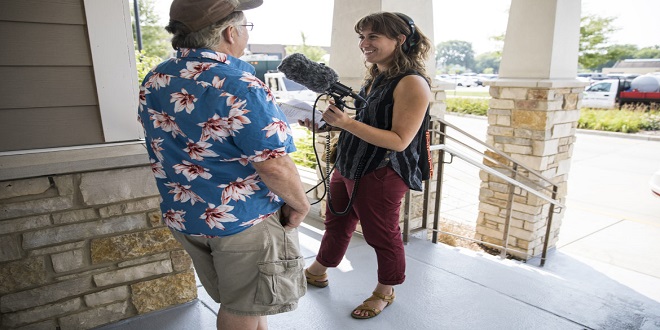The Basics of Reporting the two best questions a reporter can ask of any source are

How do you know that Show me some evidence? If a source says, for example, that a new government program is “effective,” ask for evidence of that effectiveness. How does the person in fact know that the program is effective? What demonstrable proof can be offered Seek verification and corroboration? What does “effective” even mean in this context Effective compared to what Is judged by whom.
judged by whom What do you mean Have a source clarify if there is anything confusing about what was said. If you, the reporter, do not understand what is being said or shared, the reader has no chance. For example, if a source says sales are up 15 percent, find out what exactly that means. Up 15 percent over what or when Up 15 percent for the year For the week Compared to the same period a year ago Compared to last week Sales are up but are profits How much did it cost to get that 15 percent increase Now more than ever, it is the digital journalist charged with sense-making, or with explaining and facilitating understanding.
How do you report a story that one side says is a non-story and the other says is one of the biggest in a decade Talk to as many people as you can and report what you find. Ask along the way, of everyone, “How do you know that” Reporting is a wonderful passport to go into the world and around the world, meet people you otherwise would never meet, and learn things you otherwise would never get to know. Perhaps the single most important character trait of a good reporter is curiosity.
From coming up with story ideas and angles to identifying the sources to get the story, to writing the questions to pose to those sources, to writing clearly, it is curiosity that is the constant. Good reporters ask why things work the way they do, what’s wrong, and how to make things better.
Interviewing
Though it’s a basic reporting skill, interviewing often gets overlooked. Thus, few are very good at it. A good interview typically depends on at least a few things: background research on the subject and topic, carefully thought-out questions sequenced in order of importance, a listening ear, a genuine interest in the person being interviewed, and a comfort level with silence.
Good interviewers remember to listen. They ask good questions. In addition to those just mentioned (What do you mean? How do you know that), here are a few more to consider posing to your sources if only to think about what good questions for your particular project might be
Prepare. Do the research necessary to generate good questions and to know your subject. What do you need to know to develop smart questions? What questions most need answering? Don’t be too tied to your list, however. Be flexible. And don’t start off with the most difficult or uncomfortable question. Build up to these more challenging subjects. The better questions are open-ended, not ones that can be answered with a “yes” or “no.”
Last word
During Game 3 of the 2016 N.B.A. finals, when the Golden State Warriors found themselves trailing the Cleveland Cavaliers by 17 points after the first quarter, it was left to Doris Burke of ESPN to ask Warriors coach Steve Kerr what he had seen from his team. “Not a whole lot,” Kerr said. That was the sum total of their interaction. A better question (and a happier coach) would have led to a better sideline moment.
Discover the essence of crafting captivating magazine content, delving into the art of storytelling and visual aesthetics. Uncover the secrets to engaging readers through compelling narratives and striking imagery, elevating the impact of each page turn. Master the intricacies of magazine creation to resonate with diverse audiences and leave a lasting impression.





